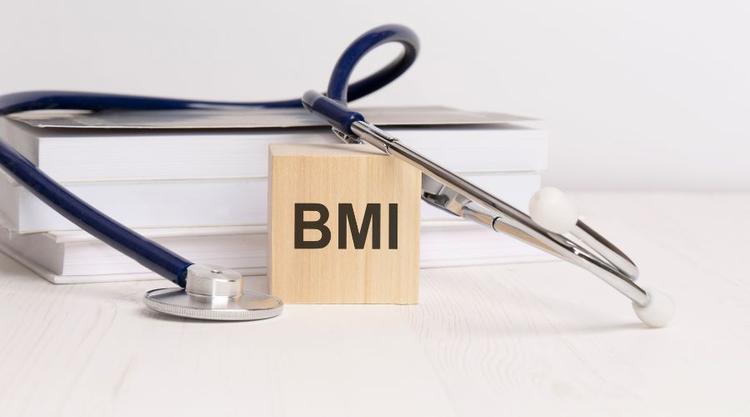Best Thyroid Doctors in Bangalore

Medically Reviewed By
Dr Divya Rohra
Written By Meenakshi
on Nov 19, 2022
Last Edit Made By Meenakshi
on Mar 18, 2024

Do you know that you have a butterfly-shaped gland in the front portion of the neck? This gland regulates metabolic processes in the body. The thyroid uses iodine to synthesize vital hormones like thyroxine, also known as T4. After it gets delivered in the blood, the small portion is converted into T3, triiodothyronine.
In case of low levels of thyroid hormone, the thyrotropin-releasing hormone causes the pituitary gland to release TSH. TSH then stimulates the thyroid gland to release T4 in the excess amount. Hence, the thyroid gland is managed by the pituitary gland & hypothalamus, disorders influence thyroid function causing numerous thyroid problems.
1 in 10 Indian adults suffers from hypothyroidism, this condition is twice as prevalent in women as in men and is common among women of childbearing age. Patients with thyroid disorders may suffer from depression, low body temperature, weight gain, poor light sensitivity, hair fall, and lack of stamina. Hence, it is quite essential to manage thyroid disorders under the supervision of the best doctor for thyroid in Bangalore. And also book thyroid test in Bangalore with Redcliffe Labs for early diagnosis.
Top 10 thyroid doctors in Bangalore
- Dr. Santhosh HS, 19 years of exp
- Dr. Ananthraman Ramakrishnan, 12 years of exp
- Dr. Radhika V Kumar, 9 years of exp
- Dr. Priya Chinnappa, 12 years of exp
- Dr. Somashekara Reddy K S, 20 years of exp
- Dr. Vijaya Sarathi H A, 7 years of exp
- Dr. Mohan Y Badgandi, 39 years of exp
- Dr. Arpan Dev Bhattacharya, 26 years of exp
- Dr. Rajeswari Janakiraman, 23 years of exp
- Dr. Srinivasa Munigoti, 12 years of exp
- Dr.Shivakumar Uppala, 15 years of exp
Queries that can be discussed with a thyroid specialist doctor in Bangalore
- Causes of hypothyroidism- The causes of hypothyroidism are inflammation, surgery, or radiation, Hashimoto’s thyroiditis, and certain medicines.
- Is there any need for treatment? The treatment is based that how low thyroid levels are dropped. The clinician will treat this condition with synthetic hormones like levothyroxine. The medicine will bring the thyroid hormones to normal and manage your signs.
- How the dose is decided? The thyroid specialist in Bangalore will prescribe the dose on the basis of your age, weight, and other conditions.
- How frequently to take the medicine? The individual is required to take the medicine on a daily basis. It has to be taken empty stomach in the morning. Food and medicines interfere with the absorption of thyroid hormone.
- For how long to take thyroid hormone? You are required to take hormones for the rest of your life, the dose can be altered on the basis of your hormone levels.
- Side effects of thyroid hormone – You might experience a pounding heart, shakiness, trouble sleeping, and enhanced appetite.
Complications of hypothyroidism
It is quite essential to manage hypothyroidism, if left undiagnosed and untreated can result in serious health concerns. The major signs are tiredness, constipation, dry skin, weight gain, changes in voice, muscle stiffness, joint pain, irregular menstrual periods, thinning hair, and depression. The other complications are discussed below:
- Goiter- The lack of thyroid hormone leads to constant stimulation resulting in enlargement of the gland.
- Cardiac issues- It increases the risk of cardiac diseases resulting in heart failure and irregular heart rate. It also enhances the risk of cholesterol and LDL.
- Depression- High levels of the thyroid may result in lethargy, slow mental function, and poor memory.
- Peripheral neuropathy- Unmanaged thyroid levels may cause damage to peripheral nerves located in the legs and arms. The individuals may suffer from numbness, pain, and tingling in the affected areas.
- Infertility- The low thyroid interferes with ovulation leading to irregular periods.
- Birth defects- Babies born to females with an untreated thyroid disorder have a high probability of being born with birth defects.
Complications of hyperthyroidism
Hyperthyroidism can often be mimicked as other health issues. Hence, it can be diagnosed properly with signs like weight loss, arrhythmia, tachycardia, anxiety, sweating, fatigue, muscle weakness, and difficulty sleeping.
- Heart complications- You can suffer from altered rhythm and a rapid heart rate increases the risk of heart failure and stroke.
- Brittle bones- The bones can be fractured easily as the high levels of thyroid impair the body’s ability to incorporate calcium in bones
- Eye issues- High thyroid levels can lead to red, swollen eyes, blurry or double vision, and even blindness.
- Thyrotoxic crisis- Sudden intensification signs lead to palpitations, fever, and altered mental status.
Get the advice of a thyroid specialist in Bangalore for following thyroid disorders
The various kinds of thyroid disorders need to be managed with the proper consultation of a doctor. If these illnesses remain unmanaged then lead to serious health complications.
- Hypothyroidism- It leads to inadequate formation of thyroid hormone and may develop issues in the thyroid gland, hypothalamus, and pituitary gland. Various signs are poor concentration, fatigue, constipation, dry skin, muscle & joint aches, fluid retention, and excessive bleeding in females.
- Hyperthyroidism- The excessive production of the hormone may lead to various signs like nervousness, fatigue, tremor, rapid heart rate, increase in bowel movements, unintentional weight loss, and concentration issues.
- Goiter- It is the enlargement of the gland and is linked with hyperthyroidism, hypothyroidism, and normal function of the thyroid.
- Thyroid nodules- Nodules are abnormal masses or lumps in the thyroid. The nodules are the result of benign tumors and cysts. It can be single or multiple with varying sizes.
- Thyroid cancer- It is quite prevalent in adult females and is quite common in individuals under 55 years. Many cases have exhibited a high survival rate if the cancer is detected at early stages.
Diagnosis of thyroid disorders
Management of thyroid disorders is quite important to prevent serious complications later in life. It is quite important to consult a thyroid specialist in Bangalore who will conduct your physical examination, medical history, and specialized tests required to diagnose thyroid disorders.
- Blood tests are performed to measure levels of thyroid hormones. The clinicians may ask you to go for tests required to identify antibodies against thyroid tissue.
- Imaging tests- These tests are done in case of thyroid enlargement and nodules. The ultrasound scan visualizes tissue consistency in the gland and can detect calcifications and cysts.
- Thyroid scan- Radioactive iodine evaluates the functioning of thyroid nodules. This method is used to detect the presence of cancer.
- Fine needle aspiration and biopsy- These techniques remove the tissue or cell sample from the thyroid gland. Fine needle aspiration uses a thin and long needle for withdrawing cell samples from the thyroid. Also, ultrasound imaging is used for FNA procedures during the biopsy.
Treatment of thyroid disorders
The thyroid disorder can be managed with medicines or surgery in extreme cases. You must take the advice of the best doctor for thyroid in Bangalore for controlling this disorder. In many cases, thyroid disorders can be managed with medical treatment. There are certain conditions that need surgery.
- Medicines- The medicines are usually taken in the form of pills by mouth. In the case of hyperthyroidism, medicines reduce thyroid production and prevent its release. If hyperthyroidism remains uncontrolled then radioactive ablation is performed.
- Thyroid surgery- The surgery removes large goiter from the gland. It is required in cases of thyroid cancer and Grave’s disease.
Hence, it is quite clear that unmanaged levels of thyroid can lead to various metabolic and serious health concerns. You must consult a doctor to control your thyroid levels. Also, you must follow the prescriptions given by the doctor.
FAQs
- What are the warning signs of thyroid issues?
The major warning signs of thyroid disorders are weight gain, fatigue, fluctuations in heart rate, sensitivity to cold and heat, and weight loss. These warning signs are based on your thyroid levels in the body.
- What are the common thyroid disorders?
Common thyroid disorders are hyperthyroidism where the body makes more thyroid, hypothyroidism where glands don’t synthesize adequate hormones, and goiter leads to enlargement of the gland.
- What are the signs of thyroid issues in females?
Various signs of thyroid problems in females are weight gain, puffy face, constipation, muscle weakness, hoarseness, and enhanced sensitivity to cold.
- Is the thyroid issue serious?
The thyroid disorder ranges from harmless goiter that requires no treatment to life-threatening thyroid cancer. The most common thyroid issues comprise the abnormal production of hormones. Hence, both of these conditions need medical attention and consultation from the best doctor for thyroid in Bangalore.



